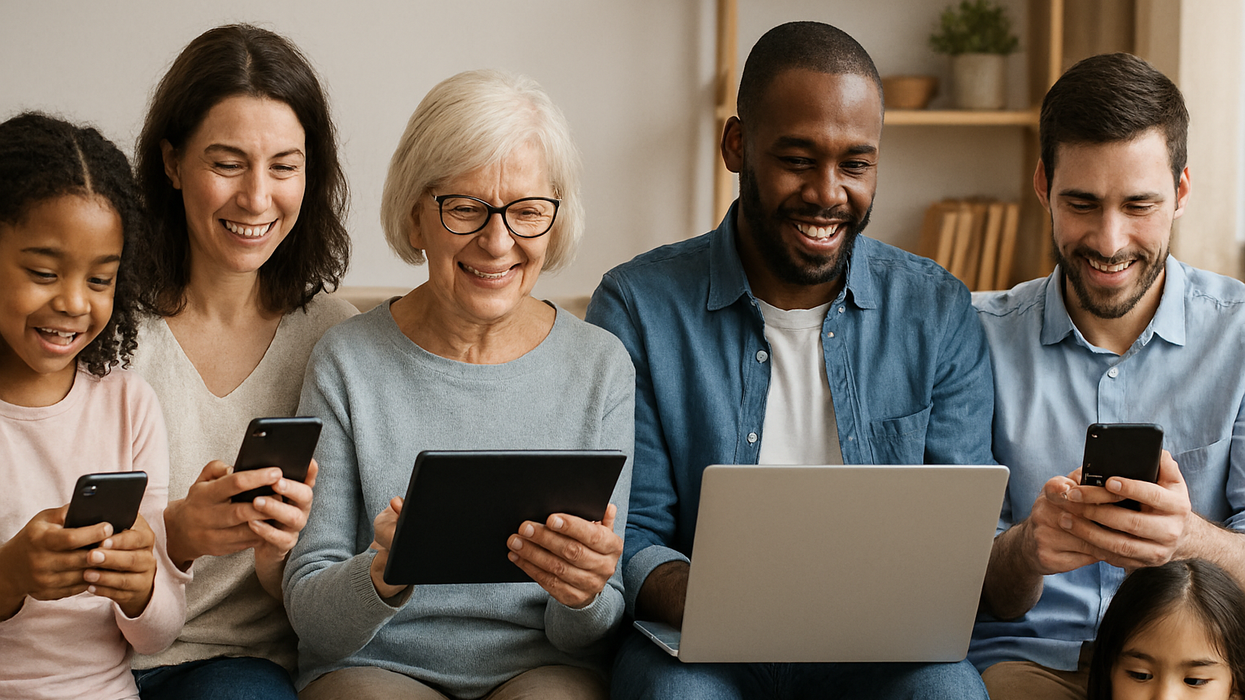Information is constantly on our phones, and we receive notifications for almost everything happening in the world, which can be overwhelming to many. Information is given to us in an instant, and more often than you think, we don’t even know what exactly we are reading.
We don’t even know if the information we see is accurate or makes sense. Media literacy goes beyond what we learn in school; it’s a skill that grows as we become more aware and critical of the information we consume.
According to the National Association for Media Literacy Education (NAMLE), media literacy is the ability to encode and decode the symbols transmitted via media, as well as synthesize, analyze, and produce mediated messages.
Being literate in the media gives media consumers critical thinking skills that can empower and guide the decisions that they will be making in their everyday lives. Misinformation has played a huge role when it comes to media literacy, many users are quick to click “share” and don’t fact-check the information that they have shared with their followers. Potentially causing false information to appear in feeds, which can drastically mislead people.
Mentioned by Free Press, “ In rapidly evolving news cycles, our social media and news feeds can be cluttered with low-quality coverage, misleading headlines, manipulated images, outdated articles and other forms of mis- and disinformation.
This can further emphasize how important it is to research and know the information that is being published in the media.This also underscores the need for diverse sources, such as nonprofits and independent news outlets, that offer audiences information they can engage with and better understand.
Media literacy is essential to a healthy democracy, as understanding the information people encounter online helps them become more politically informed and aware. Not only is media literacy about spotting fake news and disinformation but rather empowering citizens to navigate the digital world and gain critical thinking.
“To fully enjoy the right to freedom of expression and our other human rights, we need to have the tools and knowledge to read critically and put the vast array of information we receive every day in a broader context,” said ODIHR Director Matteo Mecacci.
Media freedom and media literacy work together to strengthen democracy. While media freedom makes it possible to share information openly, media literacy helps people understand and interpret what they see online.
Highlighting how media freedom, democracy, and media literacy are all connected gives the public the chance to show why protecting media freedom is key to keeping our democracies strong.
These are the main tools for empowering communities to participate in community events and globally. Understanding the ethical implications can make people make changes and fight for what they believe is right.
Speaking to Kiara Alfonseca, region 2 director of the National Association of Hispanic Journalists (NAHJ) and currently a freelance journalist, mentioned how so much of her work has been trying to combat misinformation and polarization.
“ Focusing on solutions-based stories has been really impactful in sharing what is working for communities when it comes to the issues they care about most. But when it comes to misinformation, a lot of times I've had to do really basic explainers about topics that are being misrepresented by politicians,” Alfonseca mentioned.
Media literacy also involves being able to tell when the media is portraying stereotypes such as culture, gender, race, and sexual orientation.
Mentioned by Southern New Hampshire University, “ In addition to being conscious of the media you’re consuming, recognizing stereotypes allows you to go a step further. When you’re media literate, you have the power to change the damaging narratives you're seeing — and promote accurate narratives instead.”
When media literacy is taught in schools, it can further expand the way children view the media world and can equip them with essential critical thinking skills.
Their mission is for all students in the United States to become skilled in news literacy and have the ability to participate in civic society as well-informed and critical thinkers.
“ I think it's important to teach about propaganda and how political actors have and are using both mainstream media and alternative forms of communication to spread deeply hateful and deeply harmful messaging incredibly effectively. I think journalists of all ages could also benefit from media literacy training. Sometimes we think we know it all. That's where we get into trouble.” Alfonseca said.
Media literacy can mean different things to different people, but at its core, it is the ability to fully understand what it means to be a media consumer. Consuming media is only one part of it ,the greater responsibility lies in critically evaluating and understanding the information we take in.
The digital world has brought the opportunity for everyone to create their own content, and media literacy is essential for asking and understanding what they are consuming online.
Mentioned by Reading Partners, “ Those who are media literate will realize when they are being fed news that reinforces one opinion or confirms their preexisting doubts, and won’t completely write off other news sources solely because the outlet published a piece they did not agree with.”
With the media constantly going through scrutiny and constantly being the center of all discussions for the most part…
It is important to be able to distinguish what is being said online and know exactly what we are consuming. Media literacy is able to guide audiences and provide expertise when the information addressing us is affecting the way we think, feel, and behave.




















